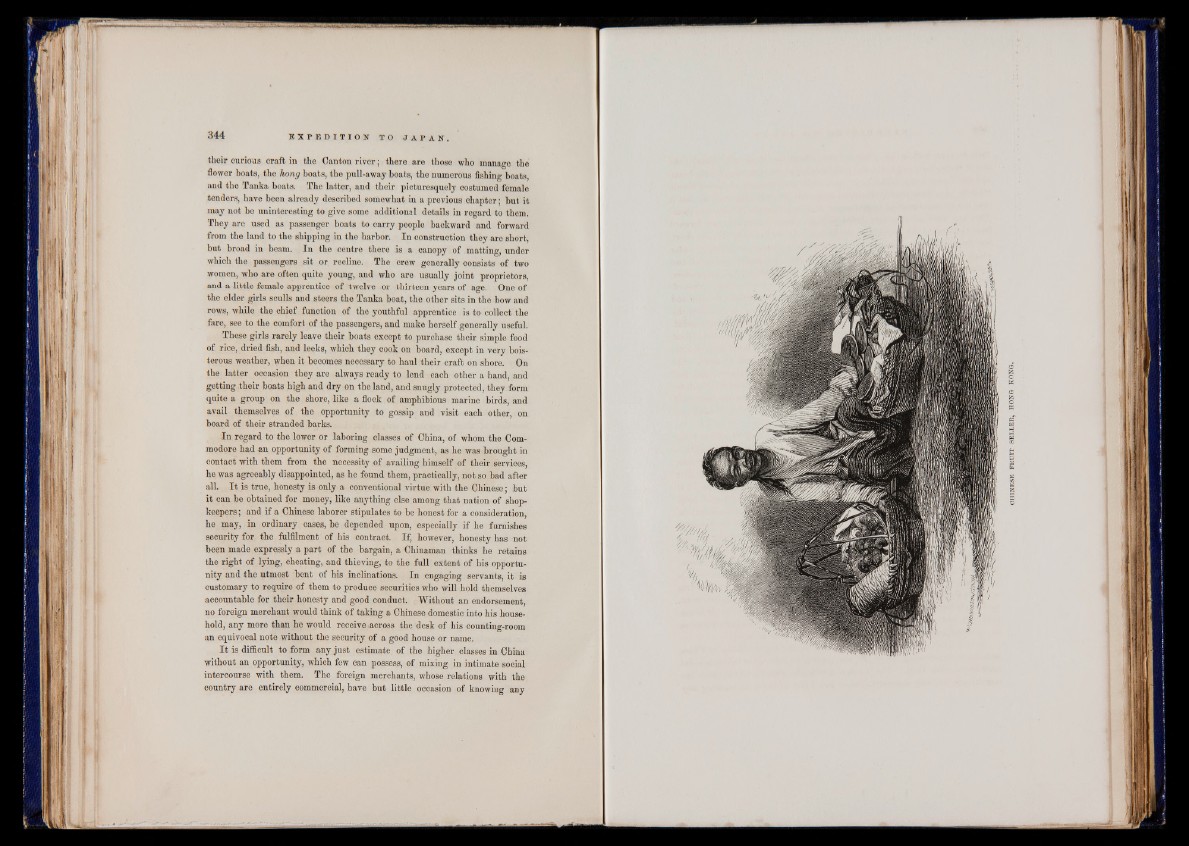
their ourious craft in the Canton river; there are those who manage the
flower boats, the hong boats, the pull-away boats, the numerous fishing boats,
and the Tanka boats. The latter, and their pioturesquely oostumed female
tenders, have been already desoribed somewhat in a previous chapter; but it
may not be uninteresting to give some additional details in regard to them.
They are used as passenger boats to carry people backward and forward
from the land to the shipping in the harbor. In construction they are short,
but broad in beam. In the centre there is a oanopy of matting, under
whioh the passengers sit or reoline. The crew generally consists of two
women, who are often quite young, and who are usually joint proprietors,
and a little female apprentice of twelve or thirteen years of age. One of
the elder girls sculls and steers the Tanka boat, the other sits in the bow and
rows, while the chief function of the youthful apprentice is to collect the
fare, see to the comfort of the passengers, and make herself generally useful.
These girls rarely leave their boats except to purchase their simple food
of rice, dried fish, and leeks, whioh they oook on board, except in very boisterous
weather, when it becomes necessary to haul their craft on shore. On
the latter oocasion they are always ready to lend each other a hand, and
getting their boats high and dry on the land, and snugly protected, they form
quite a group on the shore, like a flock of amphibious marine birds, and
avail themselves of the opportunity to gossip and visit eaoh other, on
board of their stranded barks.
In regard to the lower or laboring classes of China, of whom the Commodore
had an opportunity of forming some judgment, as he was brought in
contact with them from the necessity of availing himself of their services,
he was agreeably disappointed, as he found them, practically, not so bad after
all. I t is true, honesty is only a conventional virtue with the Chinese; but
it can be obtained for money, like anything else among that nation of shopkeepers
; and if a Chinese laborer stipulates to be honest for a consideration,
he may, in ordinary cases, be depended upon, especially if he furnishes
security for the fulfilment of his contract. If, however, honesty has not
been made expressly a part of the bargain, a Chinaman thinks he retains
the right of lying, cheating, and thieving, to the full extent of his opportunity
and the utmost bent ol his inclinations. In engaging servants, it is
customary to require of them to produce securities who will hold themselves
accountable for their honesty and good conduct. Without an endorsement,
no foreign merchant would think of taking a Chinese domestic into his household,
any more than he would receive Across the desk of his counting-room
an equivocal note without the security of a good house or name.
I t is difficult to form any just estimate of the higher classes in China
without an opportunity, which few can possess, of mixing in intimate social
intercourse with them. The foreign merchants, whose relations with the
country are entirely commercial, have but little occasion of knowing any